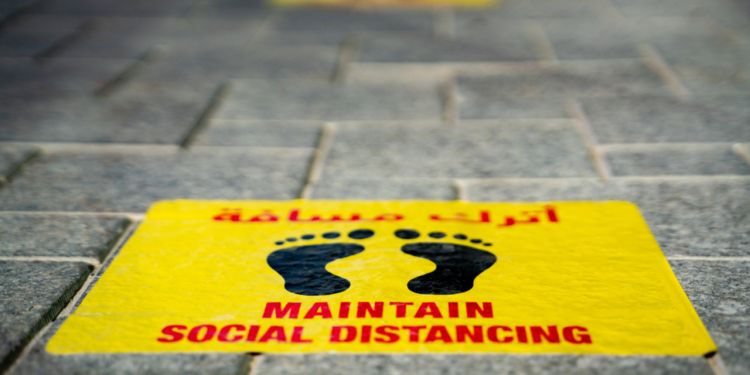
The COVID-19 pandemic has had a significant impact on countries worldwide, and Qatar is no exception. In the post-pandemic context, Qatar has undergone several changes and implemented various measures to adapt to the new normal and ensure the safety and well-being of its residents and visitors. These changes encompass various aspects of life in Qatar, including healthcare, travel restrictions, business operations, events and gatherings, and public health protocols.
What are the current regulations for entering Qatar?
Qatar is open to international visitors from all countries. Moreover, Qatar has removed most of its COVID-19 entry restrictions, including submitting a PCR test or undergoing quarantine on arrival to Qatar. All travelers, irrespective of their vaccination status, can visit Qatar.
Find out more on the official Qatar portal and on the Government Communication Office (GCO) website.
Has there been any visa changes recently?
Recently, Qatar's visa-on-arrival program has been reinstated. Visa-on-arrival is now available to travelers from 95 countries allowing tourists to travel to Qatar and take advantage of the amiable atmosphere that makes the country such a highly sought-after destination. It is advised that citizens from nationals eligible for Qatar visas on arrival have acquired health insurance in advance to speed up the process upon arrival at the country's border.
As per the latest announcement, the validity of the Hayya card is now extended until January 2024, and its holders are allowed to use the card as an entry permit to Qatar under specified conditions.
Is it easy to find work in Qatar following the crisis?
Qatar has been investing significantly in infrastructure development and diversifying its economy, which has created employment opportunities for expats in various sectors such as construction, engineering, healthcare, education, finance, and hospitality.
However, the COVID-19 pandemic has had a global impact on economies and job markets, including Qatar. The pandemic may have affected the job market dynamics and availability of opportunities. It's essential to consider the specific circumstances and any potential restrictions or changes that may have occurred in the labor market due to the crisis.
To increase your chances of finding work in Qatar, it can be helpful to research the job market, explore opportunities through online job portals, connect with recruitment agencies, and leverage professional networks. It's also crucial to have the necessary qualifications, skills, and relevant work experience that align with the job market demands in Qatar.
For the most accurate and up-to-date information on the current job market in Qatar, it is recommended to consult official government sources, job portals, and recruitment agencies specializing in Qatar or the Gulf region.
How is the local healthcare system performing since the crisis?
Qatar has one of the world's best healthcare systems, with state-of-the-art hospitals and high-skilled doctors and medical staff. Qatar has implemented several measures to address the COVID-19 crisis and protect public health. The healthcare system in Qatar has played a crucial role in responding to the pandemic. Here are some key aspects of Qatar's healthcare system performance during the COVID-19 crisis:
Testing and diagnosis: Qatar has conducted widespread testing to identify and diagnose COVID-19 cases. It established dedicated testing centers and increased testing capacity, allowing for efficient identification and tracking of cases.
Healthcare infrastructure: Qatar has invested in its healthcare infrastructure, including hospitals, clinics, and specialized facilities. This has helped to ensure the availability of adequate healthcare resources to manage the influx of COVID-19 cases.
Treatment and care: Qatar has provided appropriate medical care and treatment to individuals affected by COVID-19. The healthcare system has been equipped with the necessary resources, including hospital beds, intensive care units (ICUs), and medical equipment to manage severe cases.
Vaccination campaign: Qatar has implemented an extensive vaccination campaign to protect its population against COVID-19. The government has made COVID-19 vaccines widely available to residents, including citizens and expatriate workers.
It's important to note that the performance of any healthcare system during a crisis can be influenced by various factors, including the severity and duration of the crisis, the overall capacity and resources available, and the effectiveness of public health measures implemented. The performance of Qatar's healthcare system during the COVID-19 crisis has been influenced by these factors and ongoing efforts to manage the situation effectively.
For the most accurate and up-to-date information on Qatar's healthcare system's performance during the COVID-19 crisis, it is recommended to refer to official government sources and reports from reputable health organizations.
Has anything changed regarding universities and schools in Qatar?
There have been a number of changes regarding universities and schools in Qatar after the pandemic. Many universities and schools in Qatar have increased their focus on online learning in the wake of the pandemic. This is due to the fact that online learning has become more widely accepted and accessible. They have also adopted a blended learning approach, which combines online learning with traditional face-to-face instruction. This approach is seen as a way to provide students with the best of both worlds by allowing them to learn at their own pace and in their own time, while also providing them with the opportunity to interact with their peers and professors in a traditional classroom setting.
How is the real estate market in Qatar following the crisis?
The real estate market in Qatar is slowly recovering after the pandemic. But despite the recovery, there are still some challenges facing the real estate market in Qatar. The cost of housing in Qatar is very high, which makes it difficult for some people to afford to buy a home. Besides, the supply of housing in Qatar is not keeping up with the demand, which is driving up prices.
Has the cost of living in Qatar changed following the crisis?
The cost of living in Qatar has increased, but the extent of the increase has varied depending on the category of goods and services. For example, the cost of housing has increased by about 10% since the start of the pandemic. This is due to a number of factors, including the increase in demand for housing, the limited supply of housing, and the rise in construction costs. The cost of food has increased by about 5% and that of transportation by about 3%. There has also been a 2% rise in the cost of utilities, including electricity, water and sewage.
How about the lifestyle in Qatar? Have there been major changes in habits following the sanitary crisis?
The pandemic has led to a greater focus on health and wellness in Qatar. This is evident in the increased popularity of fitness classes, healthy eating habits, and mental health awareness.
We do our best to provide accurate and up to date information. However, if you have noticed any inaccuracies in this article, please let us know in the comments section below.






